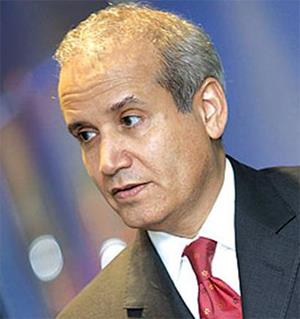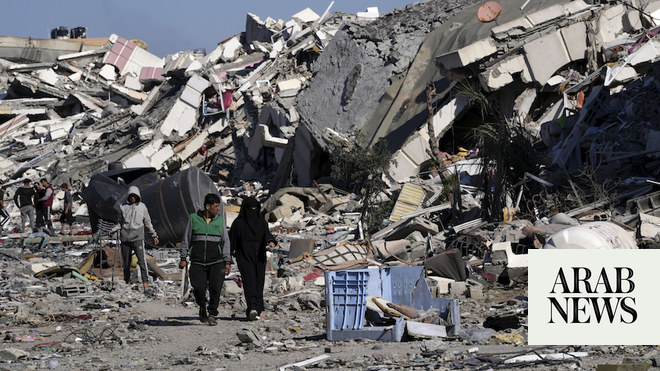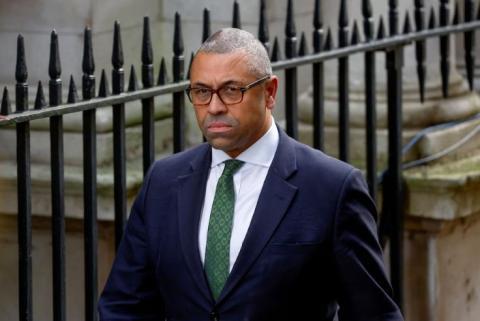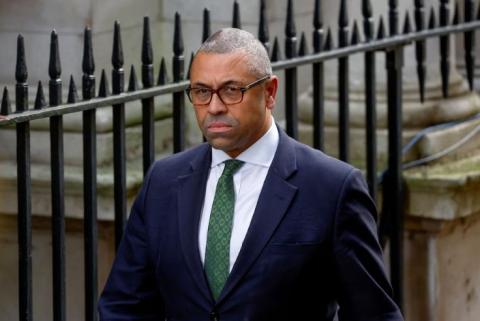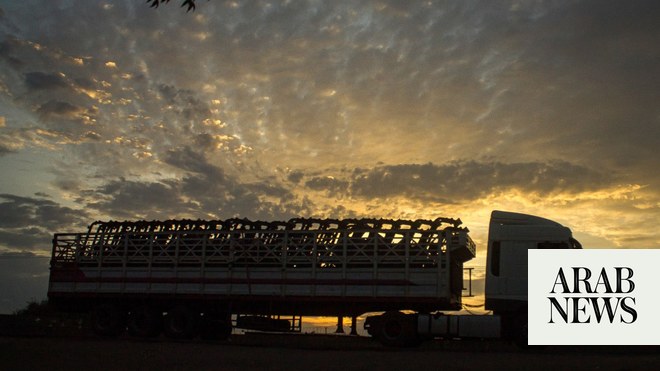
On May 22, feuding factions agreed weeklong ceasefire following US-, Saudi-brokered talks
Extension of truce expected to enable delivery of much-needed humanitarian assistance to civilians
JUBA, SOUTH SUDAN: The situation in Sudan was under international scrutiny all last week after Saudi Arabia and the US mediated a ceasefire on May 22 following five weeks of fighting.
The deal, and the talks leading up to it, aimed to address issues such as ceasefire violations, humanitarian access, and military reform.
On Sunday, Saudi Arabia and the US jointly called for an extension of the ceasefire, which has provided a respite from relentless violence for civilians caught in the crossfire since a power struggle between the Sudanese Armed Forces and the paramilitary Rapid Support Forces broke out into open warfare on April 15.
Both Saudi Arabia and America are monitoring the ceasefire — which is set to expire on Monday evening — remotely and, despite repeated violations, have urged the SAF and the RSF to continue discussions on a possible extension.
In a joint statement, Saudi Arabia and the US have noted that though the ceasefire is not perfect, an extension would facilitate the delivery of urgently needed humanitarian assistance to the Sudanese people.
While the RSF has expressed its willingness to discuss a truce renewal, there has been no clear statement from its adversary.
Cameron Hudson, an analyst and consultant on African peace, security, and governance issues, has questioned the efficacy of a ceasefire-renewal process involving only the SAF and RSF, without broader representation from the international community.
He told Arab News: “The inclusion of Sudanese civilians in monitoring the ceasefire and providing on-the-ground input to complement electronic surveillance methods is critical.”
While the ceasefire has somewhat eased the fighting, sporadic clashes and airstrikes continue to be reported in the key battlegrounds.
Aid organizations and the UN are still encountering difficulties in obtaining bureaucratic approvals and security guarantees to transport aid and personnel to the capital Khartoum and other affected areas. Warehouses have been looted, further impeding the distribution of essential supplies.
Khartoum and its surrounding areas are experiencing lawlessness, shortages, and a collapse in services following six weeks of gun battles and airstrikes.
A crime surge has led to looting and destruction of factories, offices, homes, and banks; essential services such as power, water, and telecommunications are frequently disrupted; and shortage of medicines, medical equipment, and food supplies has become acute.
Violence has also affected parts of Darfur, an area already scarred by conflict and displacement.
El-Geneina, near the border with Chad, has experienced intense fighting, resulting in hundreds of deaths. El-Fashir, the capital of North Darfur state, has witnessed a spate of clashes, with one hospital reporting three deaths and 26 injuries, including children.
At the Jeddah ceasefire meetings, the demands presented by the key actors are believed to have played a crucial role in shaping the negotiations. The RSF proposed arresting members of the former regime, blaming them for the current conflict.
Against this backdrop, experts have cautioned against a fragmented approach, arguing that the need of the hour was a “comprehensive” and future-focused strategy.
Amgad Fareid Eltayeb, the former assistant chief of staff to ex-Sudanese Prime Minister Abdalla Hamdok, told Arab News that the need for genuine reforms in Sudan’s military and security sectors had never been more urgent.
He said: “Corruption and politicization have marred the SAF, hampering stability and impeding progress. Comprehensive reforms that rebuild trust within the military apparatus and restore their competence are essential.
“The goal is to establish a professional army that focuses on its primary responsibilities while refraining from interfering in politics and the economy,” he added.
Akol Miyen Kuol, a South Sudanese regional expert based in Nairobi, told Arab News that achieving a permanent ceasefire should be the top priority of negotiators.
He said: “A durable ceasefire would create an environment conducive to subsequent political processes, leading to a peaceful settlement.”
Highlighting the need for inclusivity, he pointed out that the involvement of Sudanese political parties, civil society organizations, and professional syndicates was of paramount importance.
As a reality check, though, he noted with concern a recent Sudanese defense ministry assertion that “urban warfare has no limits” and predicted that arming SAF retirees was “an indication that fighting is likely to continue.”
Since clashes between the SAF and RSF erupted last month, more than 300,000 people have crossed Sudan’s borders, with significant numbers seeking refuge in Egypt and Chad. With more than 1.3 million people displaced by the fighting so far, there is growing concern about the future stability of the wider region.
Eltayeb said: “Sudan is too big to fail. The connection between the Red Sea and Sahel, the center, and the Horn of Africa, in addition to the large population and to its large ethnic and tribal diversity, makes the continuation of this war catastrophic.”
He noted that much more than just the fate of Sudan was in the balance.
“The world and the region will pay dearly, and not only in terms of humanitarian crisis and migration and human suffering, but also in terms of the security of neighboring countries,” Eltayeb added.




